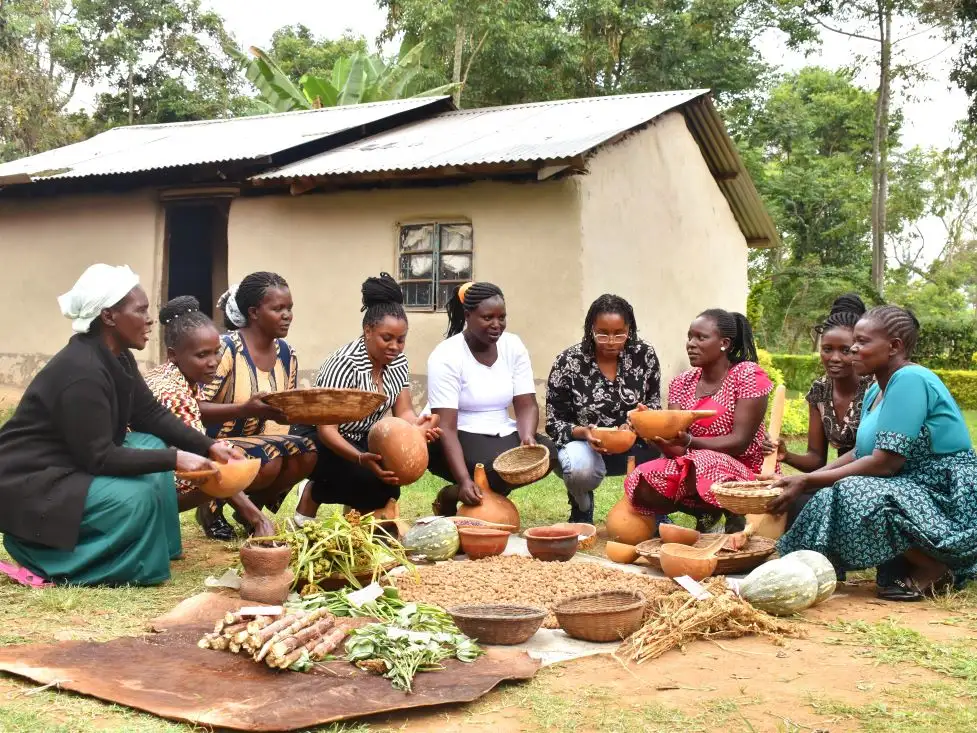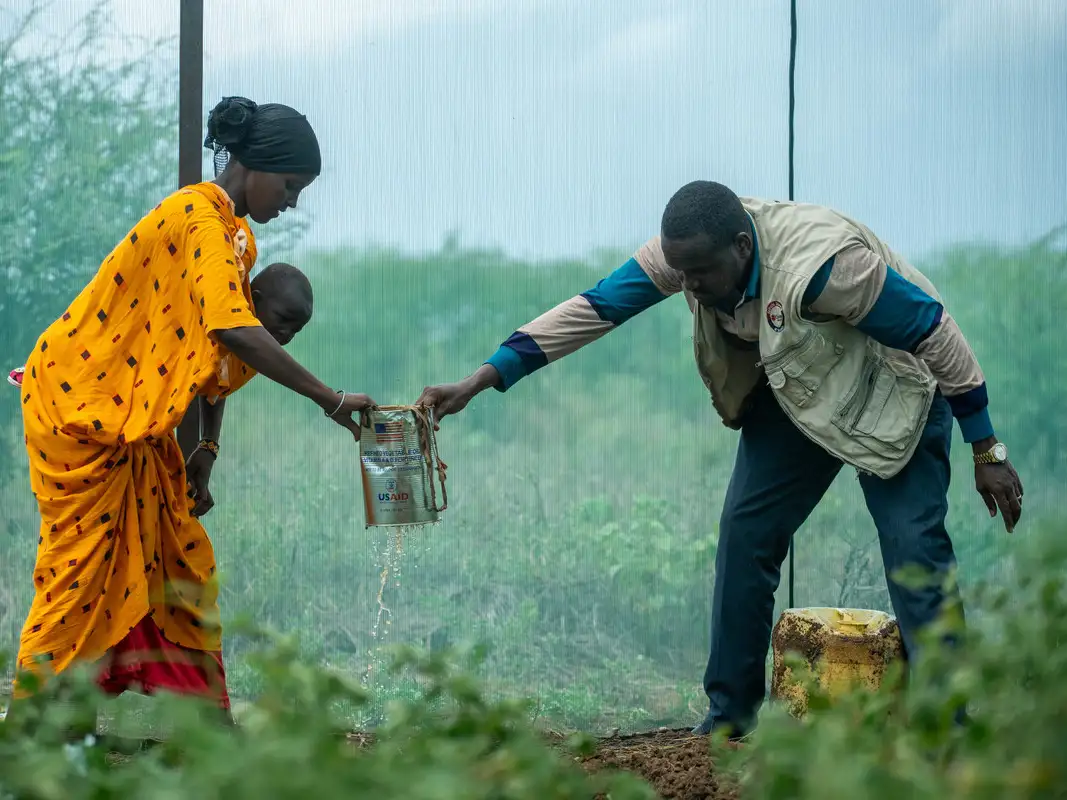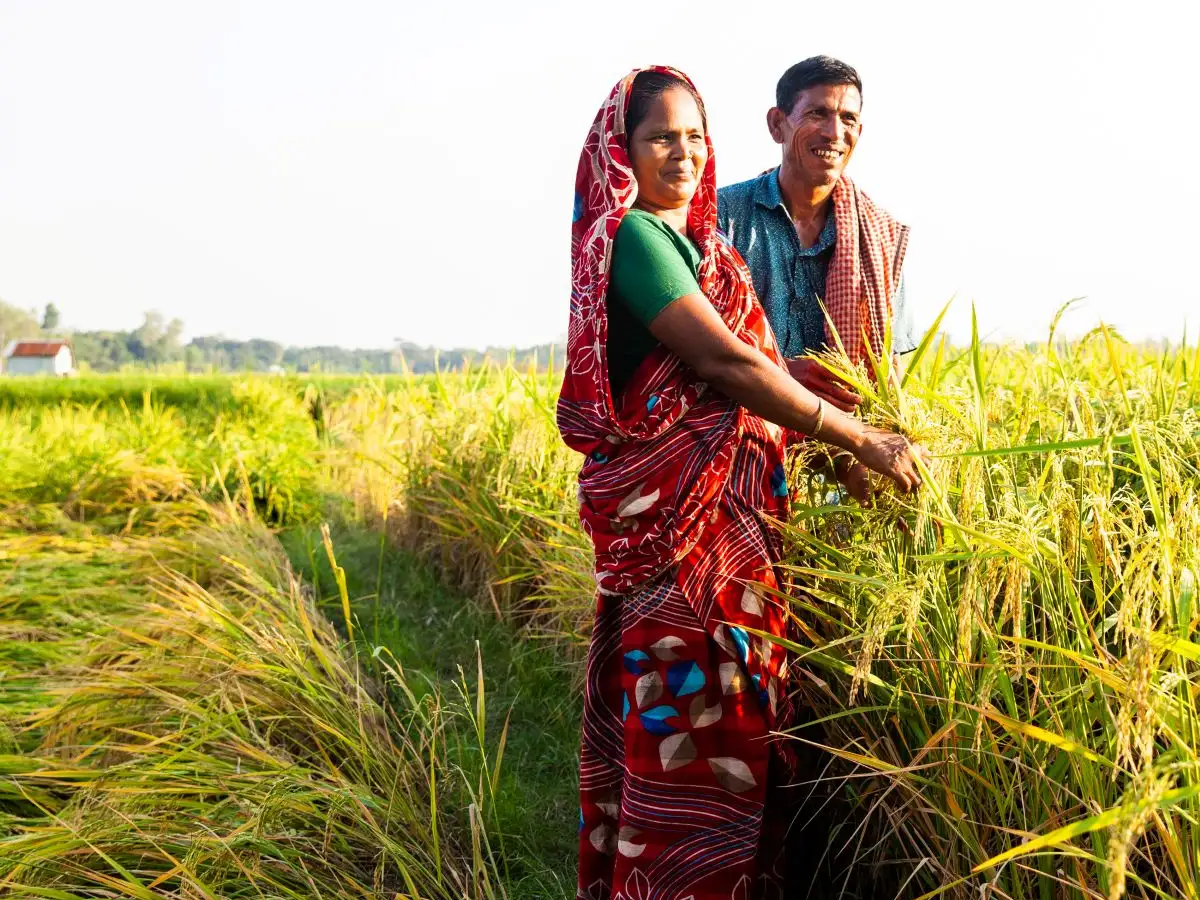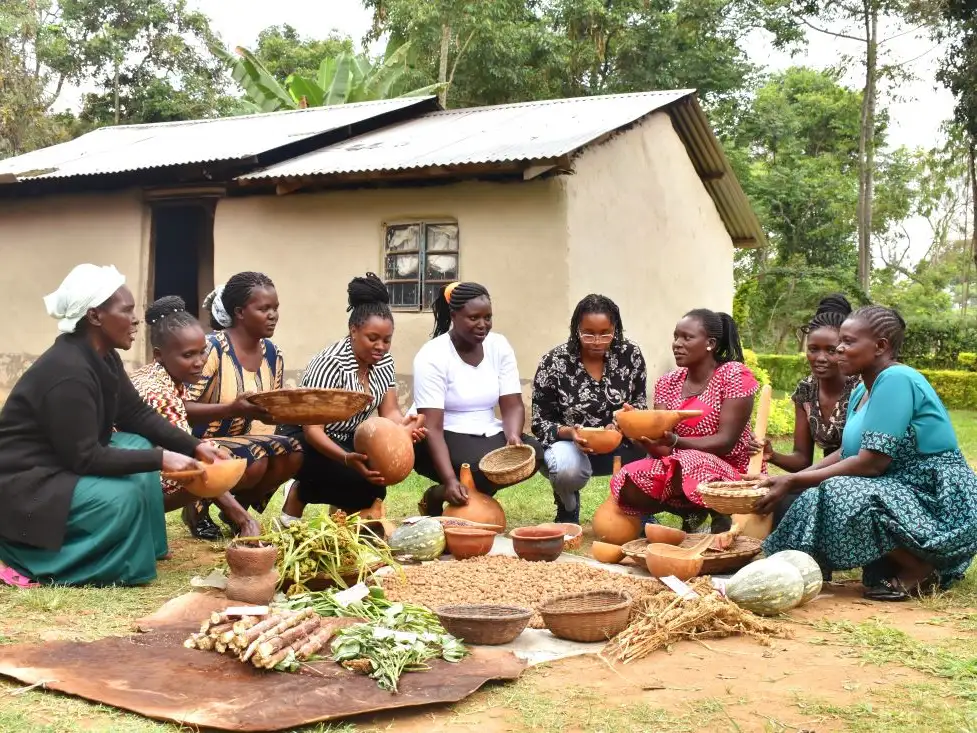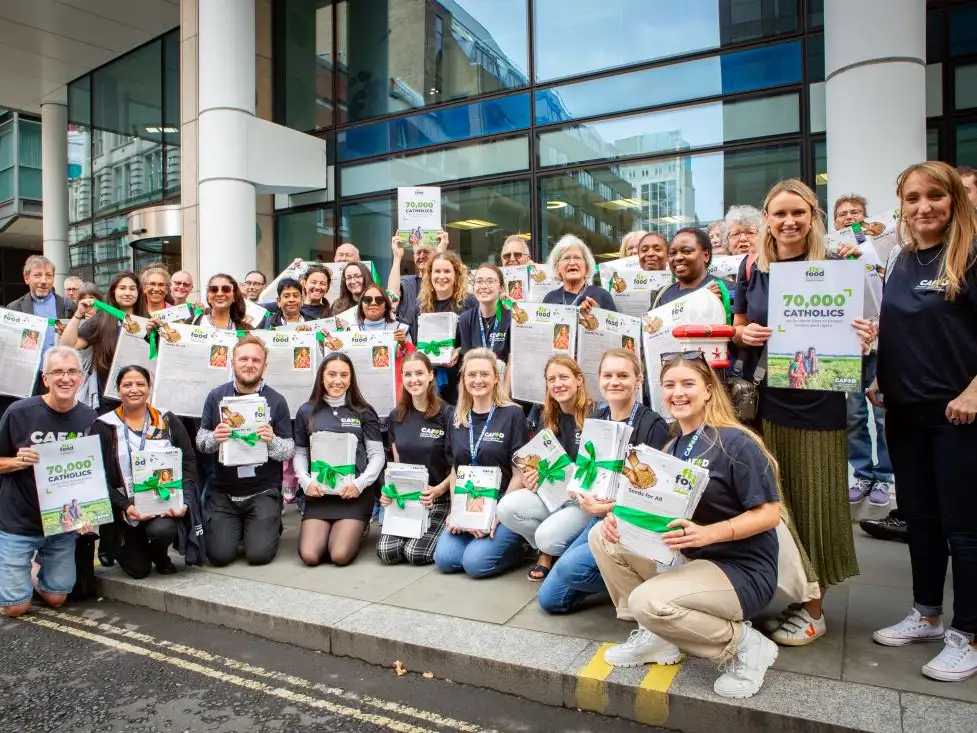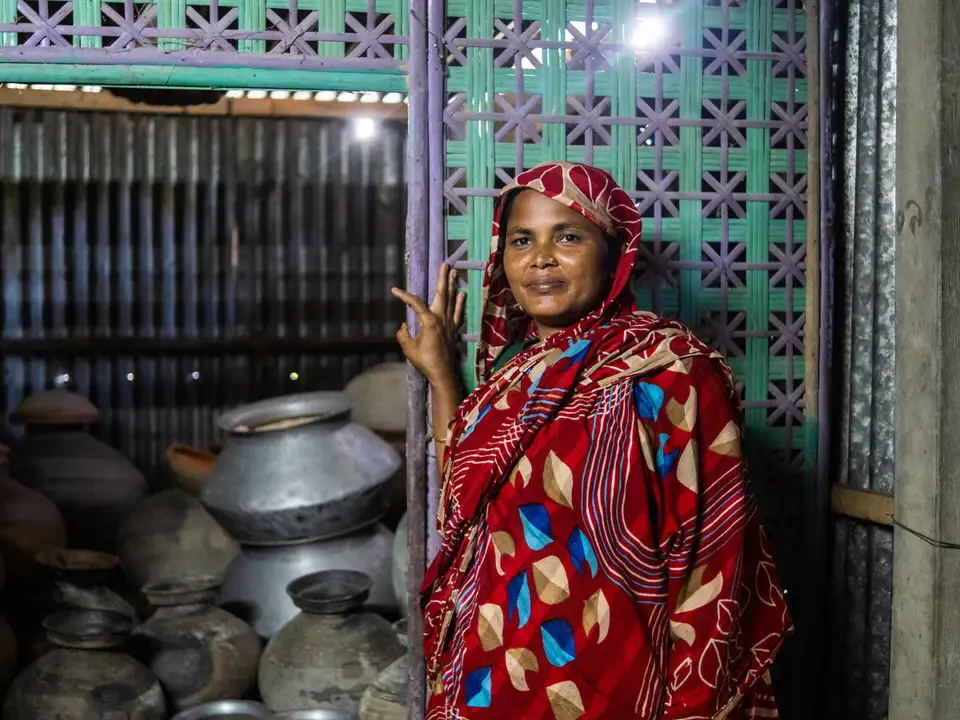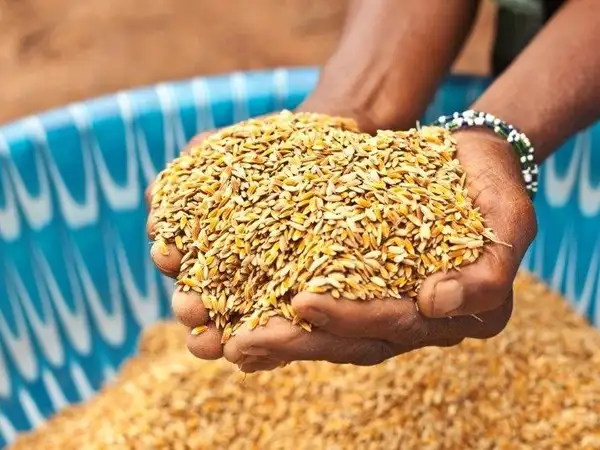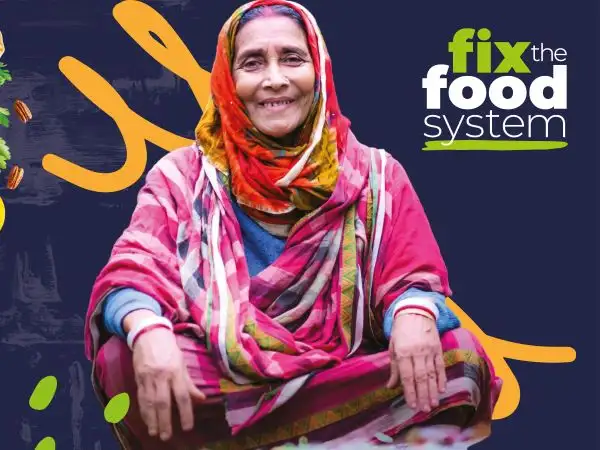
The global food system is broken. It doesn’t work for those who work the hardest – small farmers – and it’s a major driver of the climate emergency.
But it doesn’t have to be this way. Communities who work with us are leading the way, growing food in ways that are good for people and the planet. We are urging the UK government to fix the food system.
1. Our food system is bad for the planet, our common home
The way we grow, process and transport food is responsible for around one third of all global greenhouse gas emissions. Huge quantities of pesticides and fertilisers are made using fossil fuels. Forests and rainforests are cut down or burned to make huge areas available for rearing cattle for meat and dairy or to grow soya to feed the animals that we want to eat. Since 1990, around 420 million hectares of forest have been destroyed. This is 17 times the size of the UK.
We had not realised just how big a mistake we had made by moving away from the traditional ways of farming of our forefathers. We had become disconnected from nature, but now we are going back to it again.
2. Small-scale farmers have little choice over what they grow
Five of every six farms in the world consist of less than two hectares, operate only around 12 percent of all agricultural land, and produce roughly 35 per cent of the world's food. So small-scale farmers are efficient at producing food. But the domination of huge companies known as agribusiness means that they often face little choice about what they grow or how they grow it.
3. More than half of some crops are grown to feed animals reared for meat
Four corporations control 60 per cent of global seed sales, and vast areas of the same crop are grown for export, because they are profitable. For example, as much as 80 per cent of all the soya grown across the world is fed to animals that are being reared to provide meat. The UK imported about 3.5 million tonnes of soya beans in 2019 and over half of that ended up in chicken feed. Community land is taken away by these giant businesses, leaving the small farmers with small plots, which reduces their options. Pesticides are used widely, harming people and depleting the soil.
4. Millions of people who produce our food are living in poverty themselves
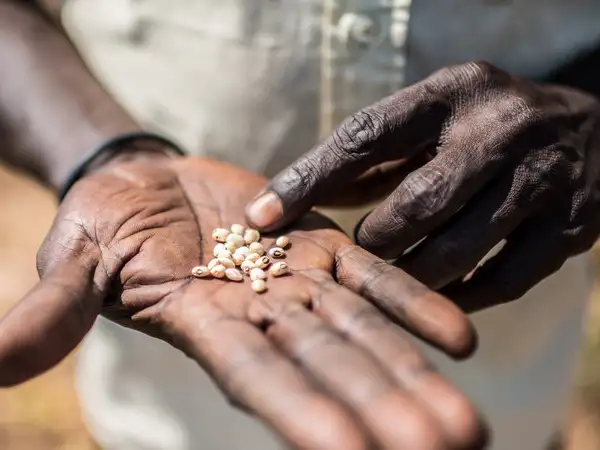

A man holding his cow-peas grown from seeds donated by Caritas Uganda. Photo credit: Tommy Trenchard
Around 800 million people go hungry each day and the majority of them are those who grow the world’s food. Three-quarters of people facing hunger in the world are living in rural areas and most of them depend on agriculture for their livelihood. 25 per cent of people in Africa are affected by hunger – the continent with the highest proportion. Of course, hunger is an issue in the UK too, with 9 per cent of adults experiencing food insecurity in January 2022.
5. One third of the food we produce is wasted
Around one-third of all food produced globally is lost or wasted. That’s 1.3 billion tonnes of food every year being thrown away globally. The land it takes to provide just the food that we throw away is bigger than the size of India, and the water it takes is equivalent to 300 million Olympic swimming pools. One study found that, in the UK, 9 per cent of strawberries and 19 per cent of lettuces grown ended up as waste.
6. But we produce enough food to feed everyone!
To feed the current global population, we need to produce 3.7 billion tonnes of food per year. We are currently producing 4 billion tonnes per year.
7. In the UK we are reliant on other countries for our food
Around half of the food we eat in the UK comes from other countries, including 80 per cent of our fruit, 50 per cent of our vegetables, and all of our rice!
8. Returning to traditional ways of farming can help
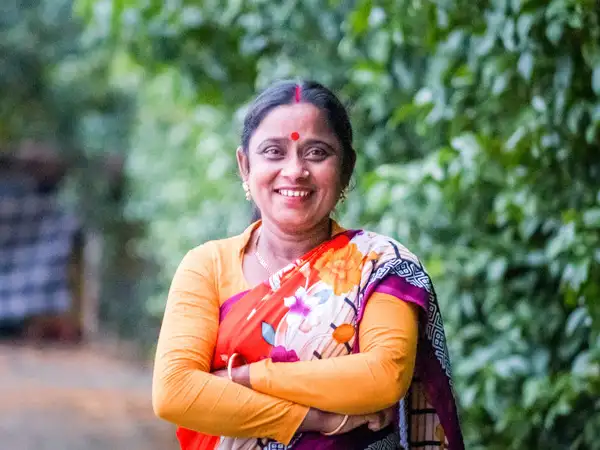

Alpona, the leader of an eco village in Bangladesh
In rural Bangladesh, small farmer Alpona is growing food in a different way. After her community received training from CAFOD in organic farming, things changed quite dramatically:
“We had not realised just how big a mistake we had made by moving away from the traditional ways of farming of our forefathers. We had become disconnected from nature, but now we are going back to it again.
"I get a great deal of vegetables and fruits from my organic farming, which is enough for the family to eat, and which I can sell at the market too. Our village has become a lot greener and healthier after so many of us shifted to organic farming, and the soil has greatly improved.”
Each of us has a role to play
"Each of us has a role to play in transforming food systems for the benefit of people and the planet. If we do not want to jeopardise the health of our planet and our entire population, we must encourage active participation in change at all levels and reorganise food systems as a whole.”
Pope Francis on World Food Day 2021
How you can play your part to fix the food system
We need alternative food systems that help tackle the climate crisis rather than fueling it and that put people first. But rather than supporting these alternatives, the UK government is backing big businesses that are putting profit first and accelerating the climate crisis.
For example, from 2013-2019 the UK spent at least £125.5m of aid money in Nigeria on fossil fuel-based fertiliser, which was five times as much as it spent supporting local farmers.
Urge the UK Government to keep the promises it made at the COP26 climate talks last year and support agricultural systems that tackle the climate crisis as well putting local communities first.


